Can you juice frozen fruit? That’s what you might be thinking if you like fresh fruit juices and want to drink them all year. The answer is an emphatic yes! However, there are other aspects to consider while freezing fruits and vegetables. Will your produce still be nutritional? Will frozen fruits and vegetables be as tasty as fresh ones? When deciding if you can juice frozen fruits and vegetables, keep the following information in mind:
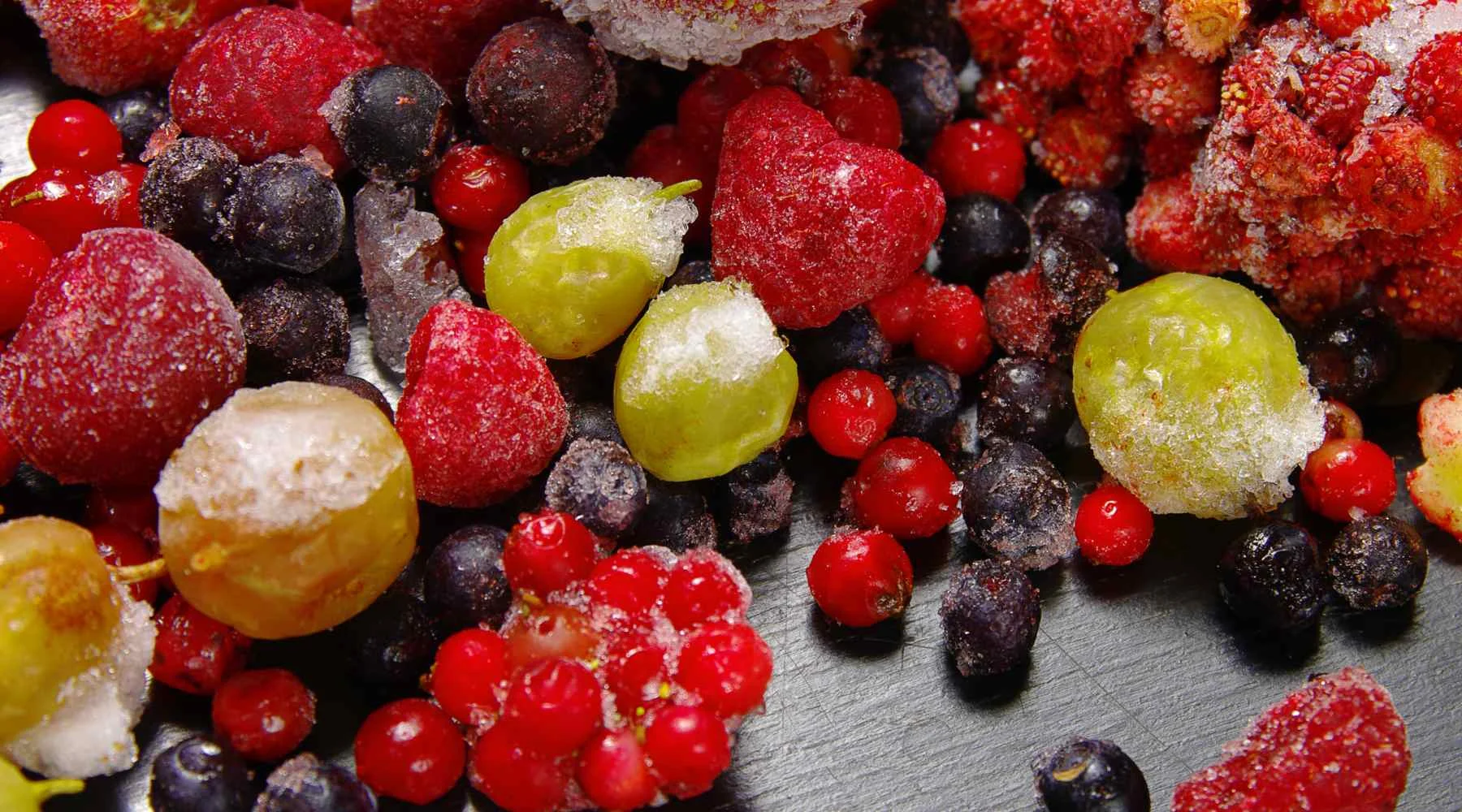
Is It Possible To Juice Frozen Fruit?
Absolutely! Frozen fruits and vegetables can be juiced. Simply defrost them first, then juice them as you would fresh veggies. Since frozen fruit is always available, there are no seasonal restrictions. Furthermore, freezing protects many of the vitamins and nutrients present in fresh produce, ensuring that your juice delivers a potent dose of goodness.
How To Juice Frozen Fruit?
Thaw the Fruit
Thaw your frozen fruit slightly before juicing. This procedure will help to prevent damage to your juicer and enable smoother juice extraction.
Spread the fruit on a platter lined with paper towels, then microwave in 30-second bursts until thawed. Put the frozen fruit in a plastic bag and place it in a bowl of cold water for 2 hours.
Use a Good Juicer
Not all juicers are the same, and some may struggle with frozen fruits. Buy a good juicer with a strong motor and sharp blades that can handle tougher items like frozen vegetables. For frozen fruits, you can use either a centrifugal or a masticating juicer.
A centrifugal juicer spins quickly when it is turned on. The teeth on the machine pull the fruit apart to get the juice out of it. This is a faster way to juice fruits, however, it results in a lot of juice in the mash.
But the masticating juicer breaks down the fruit as it goes through. It then squeezes the rind to release the juice. A masticating juicer is good because it gets most of the juice out of the fruit without using a lot of heat, which can make the juice less healthy.
Juice the Fruit
When the frozen fruit is no longer frozen and its flesh is soft, you can put it in the juicer.
There is no need to include any water or liquid in the ingredients. Depending on the strength and speed of your juicer, it may take 5 to 10 minutes to extract the fruit juice effectively. Be patient and take your time to avoid overworking the juicer.
Strain the Fruit Juice
Depending on the juicer you’re using, you may need to strain the juice to get rid of any pulp or foam. If your juice still contains fruit or vegetable fibers, try pouring it through a cheesecloth to remove the smaller pieces.
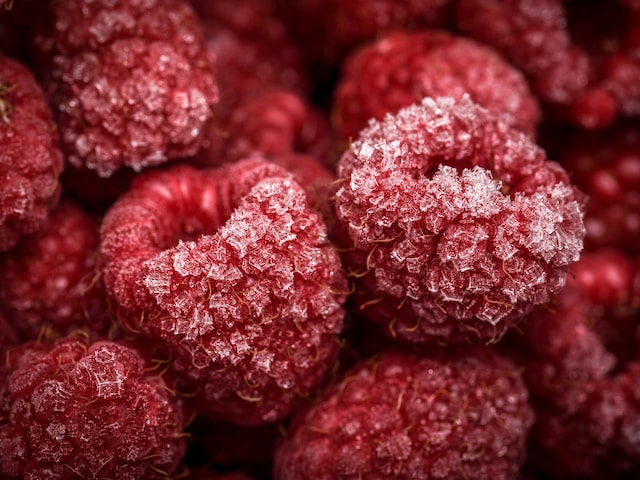
Tips For Juicing Frozen Fruit
Pair The Right Fruits For A Juice
When juicing frozen fruit, it’s preferable to use complementing flavors that work well together. Mixing fruits with different textures and sweetness levels might result in a harmonious and delightful juice.
- Watermelon+ Raspberries.
- Apple + Blueberries.
- Pineapple + Ginger.
- Orange + Carrot.
- Pear + Cucumber.
- Papaya + Nectarine.
- Cantaloupe + Kiwi.
- Grapefruit + Mandarin Orange.
Cut Into Pieces Before Juicing
Before juicing, chop the frozen fruit into smaller pieces if it’s too big. If you’re cutting hard fruits like apples or carrots, you might need to make wider cuts. This will help the juicer process and extract as much juice as possible.
Don’t Peel The Fruits
Unless the fruit has an inedible or tough skin, peeling it before juicing is unnecessary. The skins offer important nutrients and fiber that can boost the nutritional content of your juice.
Check For Freezer Burns
Before juicing, check your frozen fruit for indications of freezer burn. If they have freezer burn, avoid juicing them. Exposure to oxygen is what causes freezer burns. Trim or eliminate the afflicted regions, as they can add a disagreeable flavor to your juice.
The Benefits of Juicing Frozen Fruits and Veggies
Save time by juicing frozen ingredients directly from the freezer instead of defrosting them.
Reduced food waste: Because frozen produce lasts longer, it saves fresh produce from spoiling before you juice it.
Out-of-season foods such as berries and pineapples are available all year.
Frozen produce is collected and frozen at its optimal ripeness, conserving more vitamins.
Increased yield: Water crystals generated during freezing aid in the extraction of more juice from the produce.
Potential Downsides of Juicing Frozen Foods
Juice that is thick and pulpy: Freezing causes cell walls to burst, releasing more fiber and pulp into the juice.
Temperature: Frozen produce produces colder juice, which may require heating if you like warm juices.
Oxidation: The freezing procedure may increase oxidation, reducing the nutritional content.
Hard frozen vegetables can be difficult for juicer blades and components over time.
Most commercially frozen produce selections are fruits; vegetable varieties are fresher.
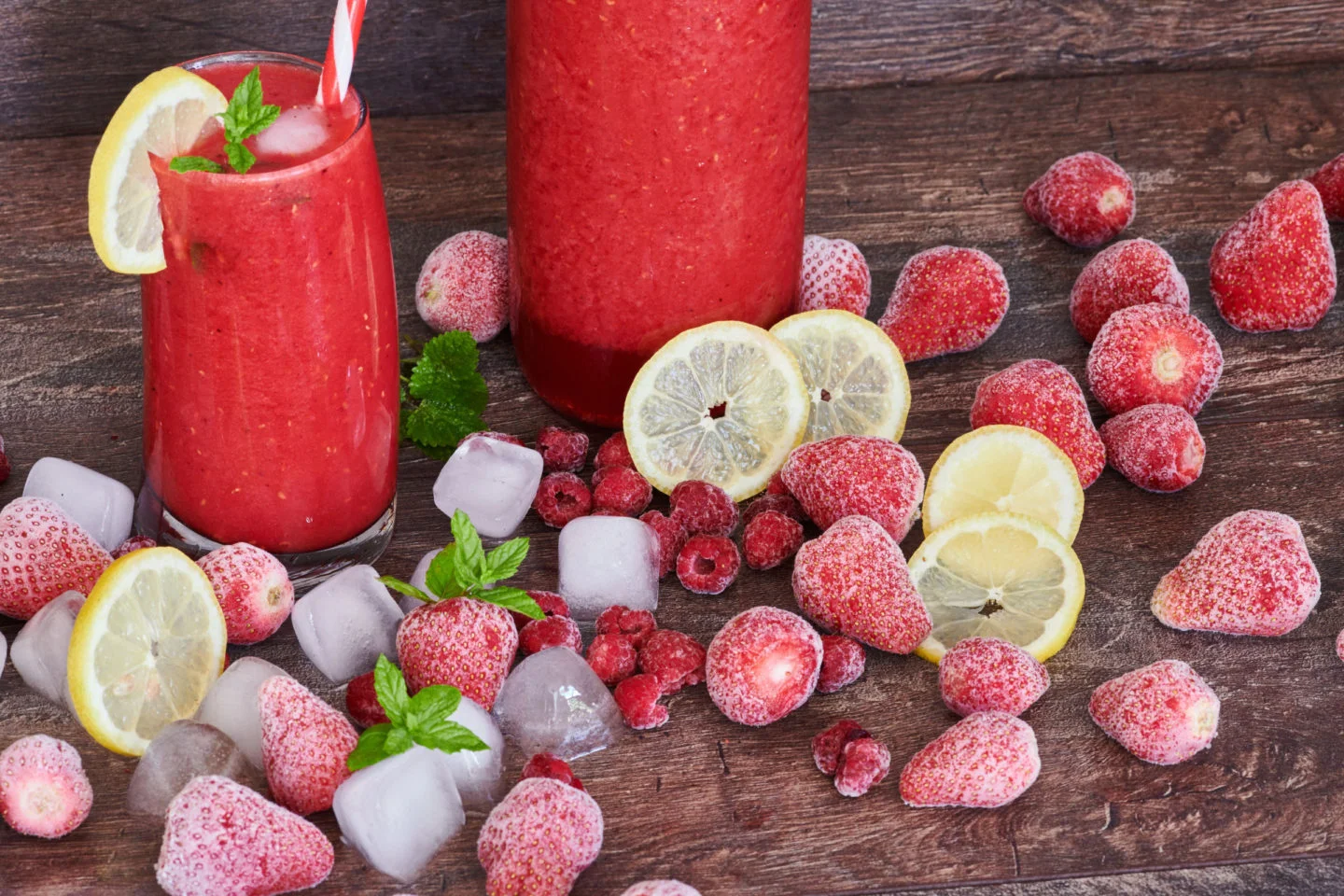
Tips To Store Juiced Frozen Fruit
Choose The Right Container
Choose the appropriate container for your needs and make sure it is freezer-safe. An ice cube tray, a mason jar, and a glass container are good options for storing freshly juiced frozen fruit. Make sure things are airtight to avoid oxidation and air bubbles. This action would also increase its lifetime.
Add Some Citrus
Adding a squeeze of lemon or lime juice might help your frozen fruit juice maintain its beautiful color and flavor throughout storage. However, keep in mind that this will give the juice a lemony fragrance and taste. If you don’t mind, this is a great advice to follow!
Defrost Before Use
If you frozen your juice, let it thaw in the fridge before you drink it. To speed up the procedure, dip the frozen juice (and its container) in lukewarm water!
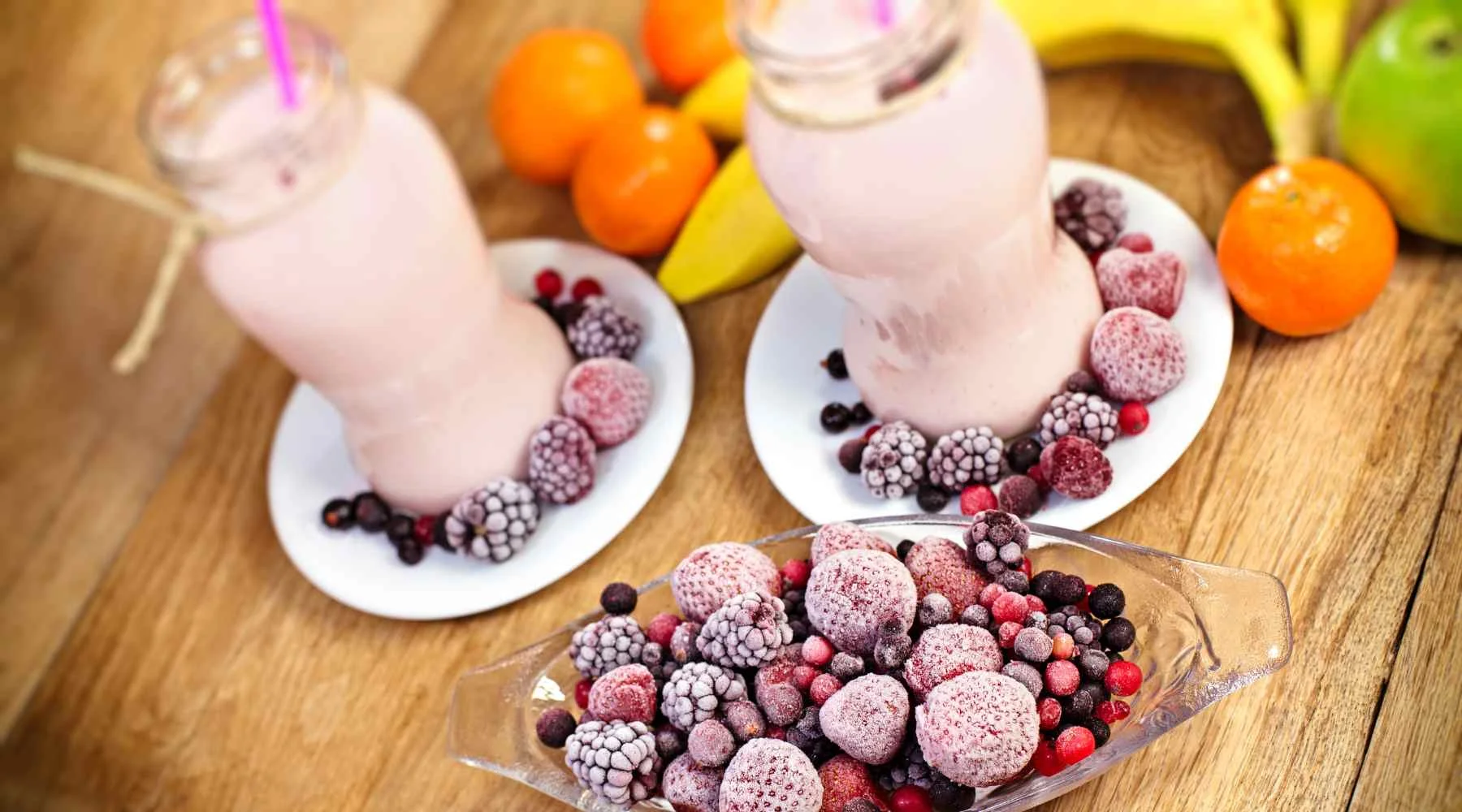
How Long Can Juiced Frozen Fruit Last?
Frozen fruits can survive for more than a fortnight. If you want to keep your freshly squeezed juice without freezing it, store it in the refrigerator for three days. When frozen, they can survive up to a week, or possibly two, depending on the fruit. If you freeze your juice, it can last for 12 to 16 months. Remember to store the key properly! Use clean, airtight containers and mark the juice so you know how old it is.
Delicious Frozen Fruit Juice Recipes
Looking for unique juicing recipes and ideas that make use of frozen fruits and vegetables? We’ve got your back! Learn about the several benefits of using frozen vegetables in your juice mixes.
Make a delightful tropical twist with frozen pineapple, mango, and spinach.
Blend frozen berries like blueberries, strawberries, and raspberries with a bit of kale for an antioxidant boost.
Do you want to add some creaminess? Combine frozen bananas, almond milk, and a pinch of cinnamon in a blender.
Looking for a refreshing green juice? Frozen green apples, cucumbers, and a handful of frozen spinach are combined.
Explore the delightful and healthful world of juicing using frozen fruits and vegetables!
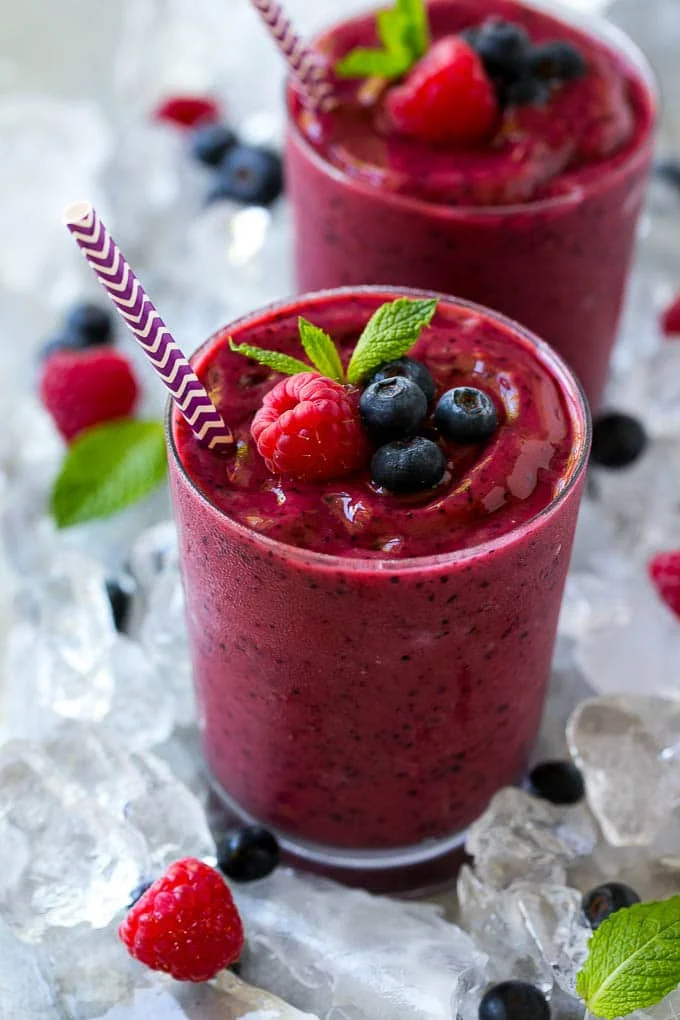
Final Thoughts
And there you have it, a world of frozen fruit juice options at your disposal! Whether you’re an experienced juicer or new to the game, juicing frozen fruit is a foolproof method to enjoy the bright flavors and benefits of your favorite fruits all year. So, turn on the juicer, gather your frozen treasures, and let the juicing adventures begin!
FAQs
Frozen fruits and veggies are also excellent for juicing. Just let them thaw first then juice just like you would with fresh produce. This can help keep your Reboot costs down and expand the rainbow of plant foods you can include.
Yes, you can put frozen fruit into your blender. Finely chop your fruit and vegetables for easier blending. That way, you don’t need to use as much liquid and the texture will be rich and thick.
Rather than pressing apples with special machines or tools, they freeze the fruits for 8 hours, defrost them completely (about 3 hours), then squeeze the flesh. The fruit becomes so soft in the frosting/defrosting process, that you can squeeze out all the liquid with just your hands.
The process is simple.
Step One: Blend. Add your washed and coarsely chopped fruits/veggies to your blender.
Step Two: Strain. Once blended, set up your straining station.
Step Three: Enjoy. Fresh squeeze (or in this case, blended) juice lasts best in the fridge for 3 days.
You can juice frozen fruits and vegetables (as well as flash-frozen produce) after you’ve let them thaw.
Thawing: It’s generally recommended to thaw the frozen fruit before juicing.
Yes, you can put frozen fruit into your blender. Finely chop your fruit and vegetables for easier blending. That way, you don’t need to use as much liquid and the texture will be rich and thick.
Sources:
- Can You Juice Frozen Fruit & Vegetables?
- Can You Juice Frozen Fruit?
- Can You Juice Frozen Fruits? Everything Explained
- The Step You Can’t Forget Before Juicing Frozen Fruits And Veggies
- Can You Juice Frozen Fruit? Simple Tips & Tricks
- Is it ok to juice frozen berries or should I just use them in smoothies?
- Can you juice frozen fruit and veggies?
- Juicing Frozen Fruit and Vegetables
- Can You Put Frozen Berries in a Juicer?
- No, You Can’t Juice a Banana (or These Other Fruits!)
- Juicing Frozen Fruit: A Comprehensive Exploration with 7 Recipes
- Fruits & Veggies: Frozen vs. Fresh
- Can You Juice Frozen Fruit?
- Does anyone know if you can use frozen fruits and vegetables in a juicer?
- 10 Best Frozen Fruit Juice Smoothie Recipes
- Can You Juice Frozen Fruit?
- How To Make a Smoothie with Frozen Fruit
- How To Make The Perfect Kompot (Homemade Juice)
- Frozen fruit juices
- Fruit Coulis
For more cooking tips, hacks, and advice:
- Best Ways to Reheat a Chipotle Bowl
- Drying Deliciousness: How to Preserve Your Bay Leaves
- Maximizing Leftover Chipotle Fridge Life
- Achieving Brisket Greatness in the Oven
- Baking Toast to Perfection in the Oven
- Letting Brisket Rest for Best Results
- Achieving Warm, Gooey Cinnamon Roll Bliss on Reheat
- Achieving the Perfect Potato Cut
- Can You Boil Oven-Ready Lasagna Noodles?
- Turning Pancake Mix into Easy DIY Waffles
- Demystifying the Perfect Simmer Temperature